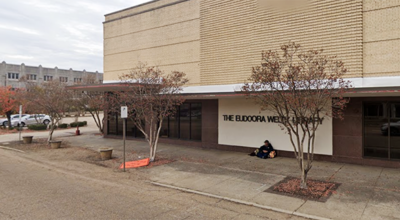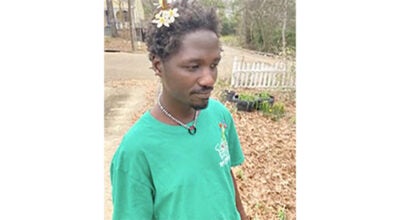UMMC study to explore why rural Mississippians die younger than others
Published 2:55 pm Wednesday, May 22, 2019
In an effort to understand why people born in rural communities in the South live shorter and less healthy lives than their counterparts elsewhere in the same counties as well as across the country, researchers from the University of Mississippi Medical Center and partner institutions today announced the launch of a new longitudinal cohort study aimed at combating this issue.
The Risk Underlying Rural Areas Longitudinal Study, or RURAL, will allow researchers to learn what causes the high burden of heart, lung, blood and sleep, HLBS for short, disorders in Kentucky, Alabama, Mississippi and Louisiana and offer clues regarding how to alleviate them.
With funding from the National Heart, Lung, and Blood Institute and led by Boston University, the six-year, $21.4 million multi-site prospective cohort study will include 50 investigators from 16 institutions.
To better understand why certain factors amplify risk in some rural counties and what renders some communities more resilient, the researchers plan to recruit and study 4,000 multi-ethnic participants from 10 of the most economically challenged rural counties in the Southern Appalachia and Mississippi Delta regions, or AMD.
“We are going to look at a rural population cohort – a cohort that’s never been successfully studied at this scale,” said Dr. Ervin Fox, UMMC professor of medicine and principal investigator for the Mississippi sites. “We plan to draw participants from throughout these communities and be able to identify solutions for a group of people who have been overlooked by previous research efforts because of their geography.”
After finalizing protocols and securing Institutional Review Board approval, the transdisciplinary RURAL team hopes to start the study by first conducting a four-hour detailed baseline exam of the study participants. They plan to use a combination of tools, such as a mobile examination unit, wearable activity monitors and smart phones to assess familial, lifestyle, behavior and medical histories including risk for HLBS disorders. In addition to considering environmental and economic factors, they will also study standard and novel risk factors for HLBS disorders.
Fox said the study plans to recruit the Mississippi RURAL cohort from Oktibbeha and Panola counties, but that “RURAL has the potential for national impact.”
Additional RURAL investigators in Mississippi include Dr. Frances Henderson, former Jackson Heart Study deputy director and dean emeritus of the Alcorn State University School of Nursing; Dr. Sandra Carr-Melvin, chief operating officer of Open Arms Healthcare Center in Jackson; Dr. Bettina Beech, dean of the John D. Bower School of Population Health at UMMC; and Abril Grant, research specialist for the Division of Cardiology at UMMC.
The main hypothesis of RURAL is that exposure to adverse social and environmental factors creates greater wear and tear of the body, affects psychosocial well-being and impacts lifestyle choices that influence HLBS risk. Furthermore, increased genetic predisposition, greater economic challenges, and non-white status may all exacerbate HLBS risk in the South.
“The rural health penalty in the South does not spare any race or ethnicity. These high risk and economically challenged rural communities are vulnerable to clusters of multiple health problems,” said Dr. Vasan Ramachandran of Boston University, principal investigator and director of Framingham Heart Study. “We aim to understand the rural health penalty in the AMD and share our findings with and offer health education to these rural communities.”
Dr. Javed Butler, professor and chair of the Department of Medicine and Patrick Lehan Chair of Cardiovascular Research at UMMC, is excited that the Medical Center will participate in RURAL.
“The NIH has guided many of the pivotal cohort studies over the last decades, that led to better understanding of diseases and ushered an era of improvement in patient treatment and outcomes. Rural communities may face unique challenges with respect to environment, healthcare infrastructure, health habits, and disease risks and characteristics,” Butler said. “The recently NIH-funded RURAL study holds promise in understanding these unique aspects of drivers of disease and outcomes in the diverse rural communities in the United States. Dr. Ervin Fox is to be congratulated for his leadership and the Department of Medicine looks forward to being part of this very important study.”
Dr. Richard Summers, associate vice chancellor for research at UMMC, said this kind of research study is much needed in Mississippi.
“Frequently in the Delta and other rural areas of our state, it is more difficult for patients to get to a health care provider, particularly ones in urban centers that can provide a higher quality of care, and we do not know enough about how that environment can impact their health,” Summers said.
In addition to UMMC, investigators from the University of Louisville, Louisiana State University Pennington Biomedical Research Center and University of Alabama at Birmingham will play a central role in participant recruitment, retention, follow-up, data return, return of results, community engagement and education. The study coordinating center is Boston University School of Medicine.
The other 11 institutions participating in RURAL are Duke University; Emory University; Johns Hopkins University; University of California, Los Angeles BioMedical Research Institute; University of California, Berkeley; University of Massachusetts Medical School; University of North Carolina at Chapel Hill; Perelman School of Medicine at the University of Pennsylvania; University of Vermont; University of Virginia at Charlottesville and the Wake Forest School of Medicine.
Article provided by UMMC.






